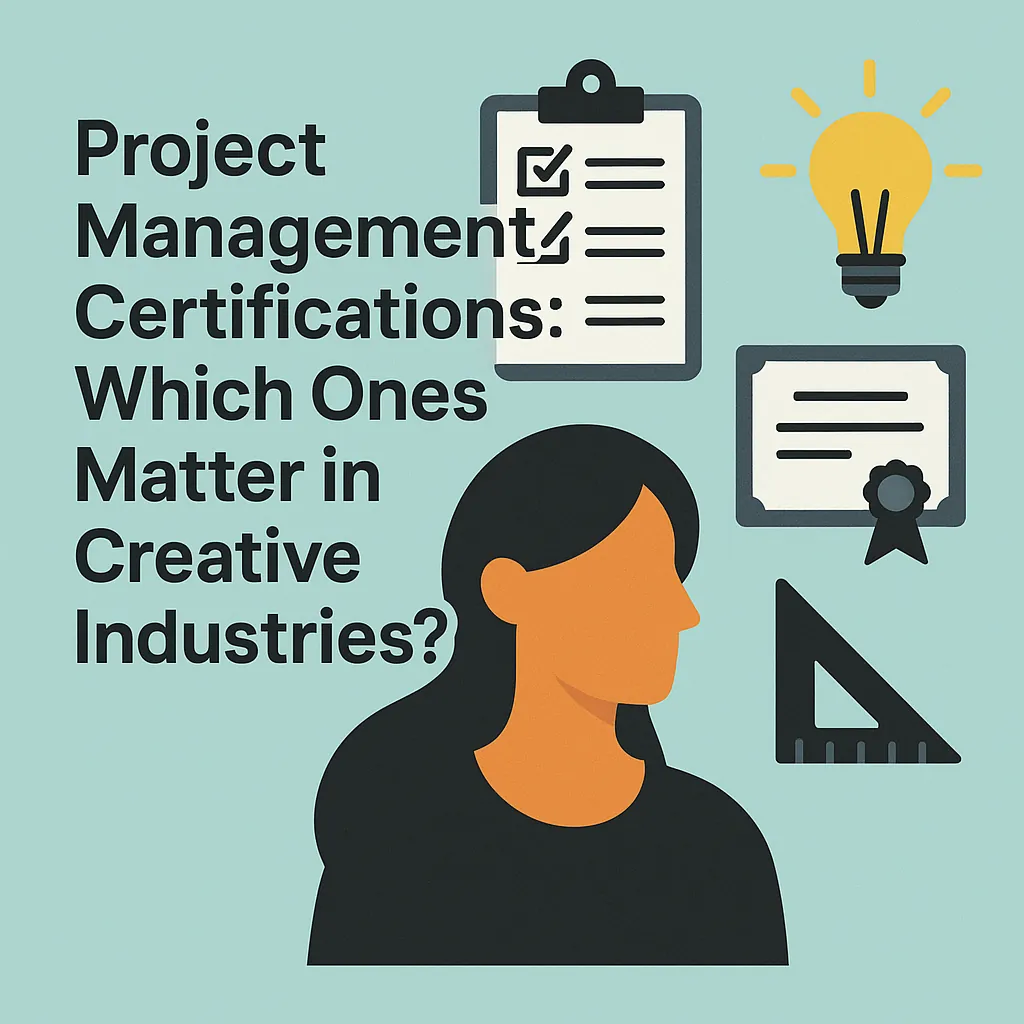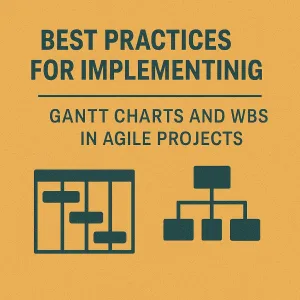Introduction to Project Management in Creative Industries
Project management is a structured approach to planning, executing, and overseeing projects to achieve specific goals within a defined timeline and budget. In creative industries such as advertising, film, design, and media, project management plays a crucial role in ensuring that creative teams work efficiently and effectively towards a common objective. The dynamic nature of these sectors requires project managers to not only possess traditional management skills but also to understand the creative process and foster an environment conducive to innovation.
Role of Project Management in Creative Industries
In creative fields, project management serves several key functions:
- Facilitating Collaboration: Project managers coordinate between various creative professionals, ensuring that everyone is aligned with the project goals and timelines. This involves managing diverse teams that may include designers, writers, artists, and technical staff, each with their own workflows and creative processes [3][5].
- Managing Creative Workflows: The creative process is often non-linear and can be unpredictable. Project managers must adapt traditional project management methodologies to accommodate the unique workflows of creative projects, which may involve iterative processes and frequent revisions [4][7].
- Balancing Creativity and Structure: While creativity is paramount in these industries, project managers must also implement structure to keep projects on track. This includes setting clear objectives, timelines, and budgets while allowing room for creative exploration [2][6].
Unique Challenges in Creative Project Management
Project managers in creative sectors face distinct challenges that can complicate the management process:
- Ambiguity and Uncertainty: Creative projects often start with vague ideas that evolve over time. This ambiguity can make it difficult to establish clear project scopes and timelines, requiring project managers to be flexible and adaptable [8].
- Resource Constraints: Creative projects may have limited budgets and resources, necessitating careful planning and prioritization to maximize output without compromising quality [1][4].
- Team Dynamics: Managing a team of creative individuals can be challenging due to varying personalities, work styles, and levels of experience. Effective communication and empathy are essential skills for project managers to navigate these dynamics successfully [4][5].
Importance of Certifications in Creative Project Management
Certifications in project management can significantly enhance the skills and career prospects of professionals in creative industries. Here’s why they matter:
- Skill Enhancement: Certifications provide project managers with formal training in essential project management methodologies, tools, and techniques. This knowledge is crucial for effectively managing creative projects and overcoming the unique challenges they present [2][8].
- Credibility and Recognition: Earning a certification can enhance a project manager’s credibility in the eyes of employers and clients. It demonstrates a commitment to professional development and a mastery of project management principles, which can be particularly valuable in competitive creative sectors [3][6].
- Networking Opportunities: Many certification programs offer access to professional networks and communities, providing project managers with opportunities to connect with peers, share experiences, and learn from industry leaders [1][7].
Why Certifications Matter in Creative Project Management
Project management plays a crucial role in ensuring that projects are executed efficiently and effectively. As competition intensifies, obtaining relevant certifications has become increasingly important for aspiring and current project managers. Here are several key points that underscore the significance of certifications in this field:
- Increasing Competition and the Need for Differentiation: The creative sectors, including advertising, design, film, and digital media, are witnessing a surge in competition. With numerous professionals vying for the same roles, certifications can serve as a distinguishing factor. They provide a tangible way to showcase expertise and knowledge, helping project managers stand out in a crowded job market. This differentiation is essential for securing positions and advancing careers in creative industries, where talent and skills are paramount [12].
- Demonstrating Commitment to Professional Development: Certifications are not just credentials; they represent a commitment to continuous learning and professional growth. By pursuing certifications, project managers signal to employers and clients that they are dedicated to enhancing their skills and staying updated with industry trends. This commitment can enhance a project manager’s credibility and reliability, making them more attractive candidates for leadership roles within creative teams [13].
- Expanding Networks and Opening Opportunities: Obtaining certifications often provides access to a broader professional network. Many certification programs offer opportunities for networking with peers, industry leaders, and potential employers. These connections can lead to collaborations, mentorships, and job opportunities that might not be available otherwise. Additionally, being part of a certified community can foster knowledge sharing and support, further enriching a project manager’s professional journey [14].
Key Project Management Certifications for Creative Industries
Effective project management is crucial for delivering innovative projects on time and within budget. Aspiring and current project managers can enhance their skills and credibility through various certifications. Here’s a comprehensive overview of the most relevant certifications for project managers in creative sectors:
- Project Management Professional (PMP): The PMP certification, offered by the Project Management Institute (PMI), is one of the most recognized credentials in the field. It demonstrates a project manager’s ability to lead and direct projects effectively. The relevance of PMP in creative industries lies in its comprehensive approach to project management, covering essential skills such as risk management, stakeholder engagement, and resource allocation. Key benefits include increased job opportunities, higher earning potential, and enhanced credibility among peers and clients.
- Certified ScrumMaster (CSM): The CSM certification focuses on the Scrum framework, which is particularly relevant for agile project management in creative teams. This certification equips project managers with the skills to facilitate collaboration, adapt to changing requirements, and deliver projects incrementally. In creative environments where flexibility and rapid iteration are essential, CSM helps teams to enhance productivity and foster a culture of continuous improvement.
- PRINCE2 Certification: PRINCE2 (Projects in Controlled Environments) is a structured project management methodology that emphasizes organization and control throughout the project lifecycle. Its relevance to creative projects lies in its ability to provide a clear framework for managing complex projects with multiple stakeholders. The benefits of PRINCE2 include improved project efficiency, better risk management, and enhanced communication among team members, making it a valuable certification for project managers in creative sectors.
- Agile Certified Practitioner (PMI-ACP): The PMI-ACP certification focuses on agile methodologies, which are increasingly adopted in creative industries to enhance responsiveness and innovation. This certification covers various agile approaches, including Scrum, Kanban, and Lean, enabling project managers to implement agile practices effectively. The PMI-ACP is particularly beneficial for those working in environments where adaptability and quick decision-making are critical to project success.
- Certified Associate in Project Management (CAPM): The CAPM certification is designed for individuals who are new to project management. It provides foundational knowledge of project management principles and practices, making it an excellent starting point for those entering creative sectors. The CAPM helps aspiring project managers understand the basics of project planning, execution, and monitoring, thereby laying a solid groundwork for future career advancement.
- Lean Six Sigma Certification: Lean Six Sigma combines lean manufacturing principles with Six Sigma methodologies to improve efficiency and reduce waste in projects. In creative industries, where resource optimization is vital, this certification helps project managers streamline processes and enhance project outcomes. The application of Lean Six Sigma can lead to improved quality, faster delivery times, and increased customer satisfaction, making it a valuable asset for project managers in creative fields.
Choosing the Right Certification for Your Career Path
Selecting the appropriate project management certification is crucial for aspiring and current project managers, especially in the creative industries. Here are some key points to consider when making this decision:
- Assess Personal Career Goals and Current Skill Levels: Before diving into certification options, it’s essential to evaluate your career aspirations and existing skills. Reflect on where you see yourself in the future—whether it’s leading large creative teams, managing specific projects, or working in niche areas like digital marketing or design. Understanding your strengths and weaknesses will help you choose a certification that complements your current skill set and aligns with your long-term objectives.
- Consider the Specific Creative Sector and Its Project Management Demands: Different creative sectors, such as advertising, film, design, or digital media, have unique project management requirements. For instance, project managers in the film industry may need to focus on certifications that emphasize budgeting and scheduling, while those in digital marketing might benefit from certifications that cover agile methodologies and digital tools. Researching the specific demands of your chosen sector will guide you in selecting a certification that is most relevant and beneficial.
- Research Employer Preferences and Industry Trends Regarding Certifications: Understanding what employers in your desired field value can significantly influence your certification choice. Many organizations have specific preferences for certain certifications, which can enhance your employability. Additionally, staying informed about industry trends can help you identify which certifications are gaining traction and are likely to be recognized in the future. Engaging with professional networks, attending industry conferences, and reviewing job postings can provide insights into what certifications are most respected and sought after in the creative industries.
By carefully considering these factors, you can make an informed decision about which project management certification will best support your career path in the creative sectors. This strategic approach not only enhances your qualifications but also positions you for success in a competitive job market.
Preparing for Certification: Tips and Resources
As aspiring and current project managers in the creative industries look to enhance their credentials, obtaining relevant certifications can be a significant step forward. Here’s a guide to help you prepare effectively for certification exams, including recommended study materials, resources, and practical tips for balancing your study time with work commitments.
Recommended Study Materials and Resources
- Project Management Professional (PMP)
- Books: A Guide to the Project Management Body of Knowledge (PMBOK® Guide) – Essential for understanding the standards and practices.
PMP Exam Prep by Rita Mulcahy – A comprehensive resource for exam preparation.
- Online Resources: PMI’s official website offers a wealth of resources, including sample questions and study guides.
- Books: A Guide to the Project Management Body of Knowledge (PMBOK® Guide) – Essential for understanding the standards and practices.
- PRINCE2 Certification
- Books: PRINCE2: A Practical Handbook – Provides practical insights into the PRINCE2 methodology.
- Online Courses: Websites like Coursera and Udemy offer PRINCE2 certification courses that include video lectures and quizzes.
- Certified ScrumMaster (CSM)
- Workshops: Attend a CSM workshop led by a certified trainer, which often includes hands-on activities and group discussions.
- Study Groups: Join local or online Scrum user groups to share knowledge and resources.
- Agile Certified Practitioner (PMI-ACP)
- Study Guides: Agile Estimating and Planning by Mike Cohn – A great resource for understanding Agile principles.
- Online Courses: Platforms like LinkedIn Learning offer courses specifically tailored for the PMI-ACP exam.
Online Courses, Workshops, and Study Groups
- Online Learning Platforms: Websites such as LinkedIn Learning, Coursera, and edX provide a variety of courses tailored to different project management certifications. These platforms often include interactive elements, quizzes, and peer discussions to enhance learning.
- Workshops: Look for workshops offered by local project management institutes or professional organizations. These can provide intensive, focused learning experiences and networking opportunities.
- Study Groups: Form or join study groups with peers who are also preparing for the same certification. This collaborative approach can help clarify concepts and provide motivation.
Tips for Balancing Study Time with Work in Creative Industries
- Create a Study Schedule: Allocate specific times during the week dedicated to studying. Treat these times as appointments that cannot be missed.
- Set Realistic Goals: Break down your study material into manageable sections and set achievable goals for each study session. This can help prevent overwhelm and keep you motivated.
- Utilize Downtime: Make use of any downtime during your workday to review flashcards or listen to relevant podcasts. This can help reinforce your learning without requiring large blocks of time.
- Incorporate Learning into Daily Tasks: Try to relate your study material to your current projects. Applying concepts in real-time can enhance understanding and retention.
- Stay Flexible: Be prepared to adjust your study schedule as needed. The creative industry can be unpredictable, so maintaining flexibility will help you stay on track without added stress.
By utilizing these resources and strategies, project managers in the creative industries can effectively prepare for their certification exams, enhancing their skills and career prospects in this dynamic field.
The Impact of Certifications on Career Advancement
Project management certifications play a crucial role in shaping career trajectories and enhancing job opportunities. For aspiring and current project managers, understanding the significance of these certifications can be a game-changer. Here are some key points to consider:
- Statistics and Testimonials: Research indicates that certified project managers often experience a notable boost in their career prospects. For instance, a survey conducted by the Project Management Institute (PMI) revealed that certified project managers earn, on average, 20% more than their non-certified counterparts. Testimonials from professionals in creative sectors highlight how certifications have opened doors to leadership roles and increased their credibility among peers and clients. Many report feeling more confident in their abilities to manage complex projects effectively, which is essential in creative environments where innovation and adaptability are paramount [1].
- Salary Increases and Job Opportunities: Obtaining a project management certification can lead to significant salary increases and expanded job opportunities. For example, professionals with a Project Management Professional (PMP) certification often see a salary boost of up to 25% within the first year of certification. Additionally, many organizations in creative industries prioritize hiring certified project managers, as these credentials demonstrate a commitment to the profession and a mastery of essential project management skills. This can result in a wider array of job openings, from project coordinator roles to senior management positions [2].
- Importance of Continuous Learning and Re-Certification: The creative industries are constantly evolving, making continuous learning and re-certification vital for project managers. Many certifications require ongoing education to maintain their validity, which encourages professionals to stay updated on the latest trends, tools, and methodologies in project management. This commitment to lifelong learning not only enhances individual skill sets but also contributes to the overall success of projects within creative sectors. By engaging in continuous professional development, project managers can adapt to changes in the industry and remain competitive in the job market [3].
Conclusion: Taking the Next Steps in Your Project Management Journey
Obtaining project management certifications can significantly enhance your career prospects and effectiveness as a project manager. Here are some key benefits of pursuing these certifications:
- Enhanced Credibility: Certifications such as the Project Management Professional (PMP) are widely recognized and respected across various sectors, including creative fields. They demonstrate your commitment to the profession and your ability to manage projects effectively, which can set you apart from your peers [4].
- Improved Skills and Knowledge: Engaging in certification programs equips you with essential project management methodologies and tools. This knowledge is crucial for navigating the complexities of creative projects, where innovation and collaboration are paramount [8].
- Networking Opportunities: Many certification programs offer access to a community of professionals. This network can provide valuable insights, support, and potential collaboration opportunities within the creative industries [3].
As you consider your next steps, it’s important to assess your current position and future goals. Reflect on the following:
- Current Skill Set: Evaluate your existing project management skills and identify areas for improvement. Understanding your strengths and weaknesses will help you choose the right certification that aligns with your career aspirations [5].
- Career Objectives: Define your long-term career goals. Are you looking to advance in your current role, switch to a different area within the creative sector, or take on more leadership responsibilities? Your goals will guide your choice of certification [6].
Find out more about Shaun Stoltz https://www.shaunstoltz.com/about/.
This post was written by an AI and reviewed/edited by a human.



